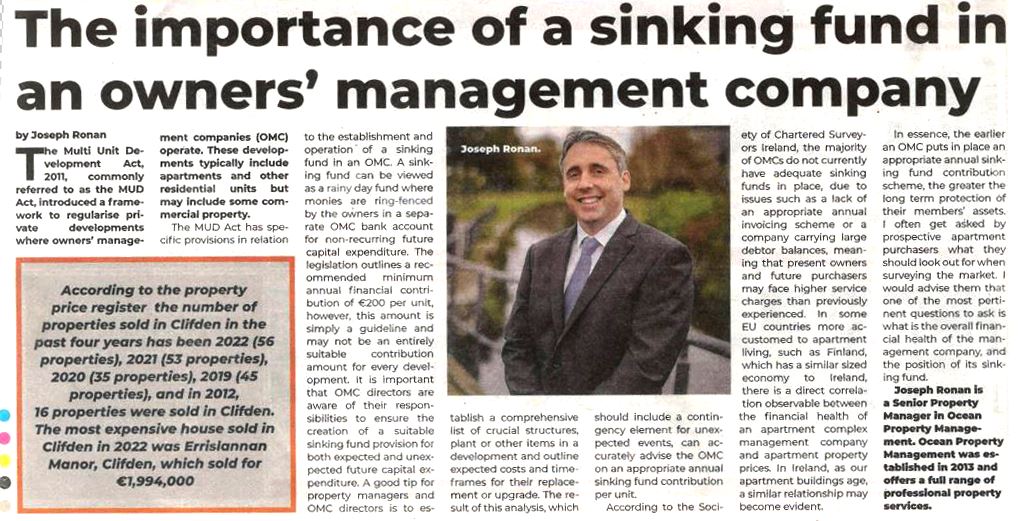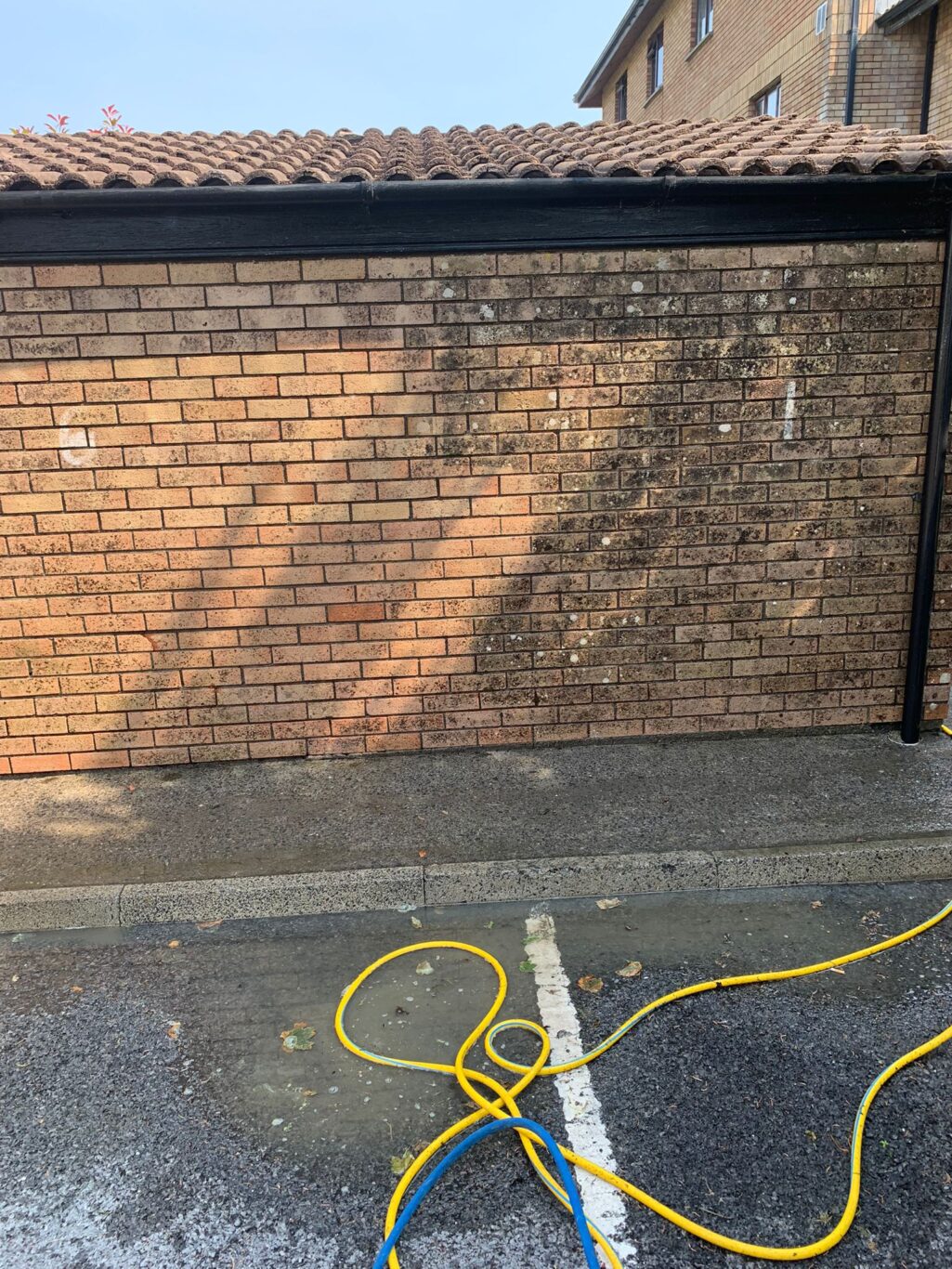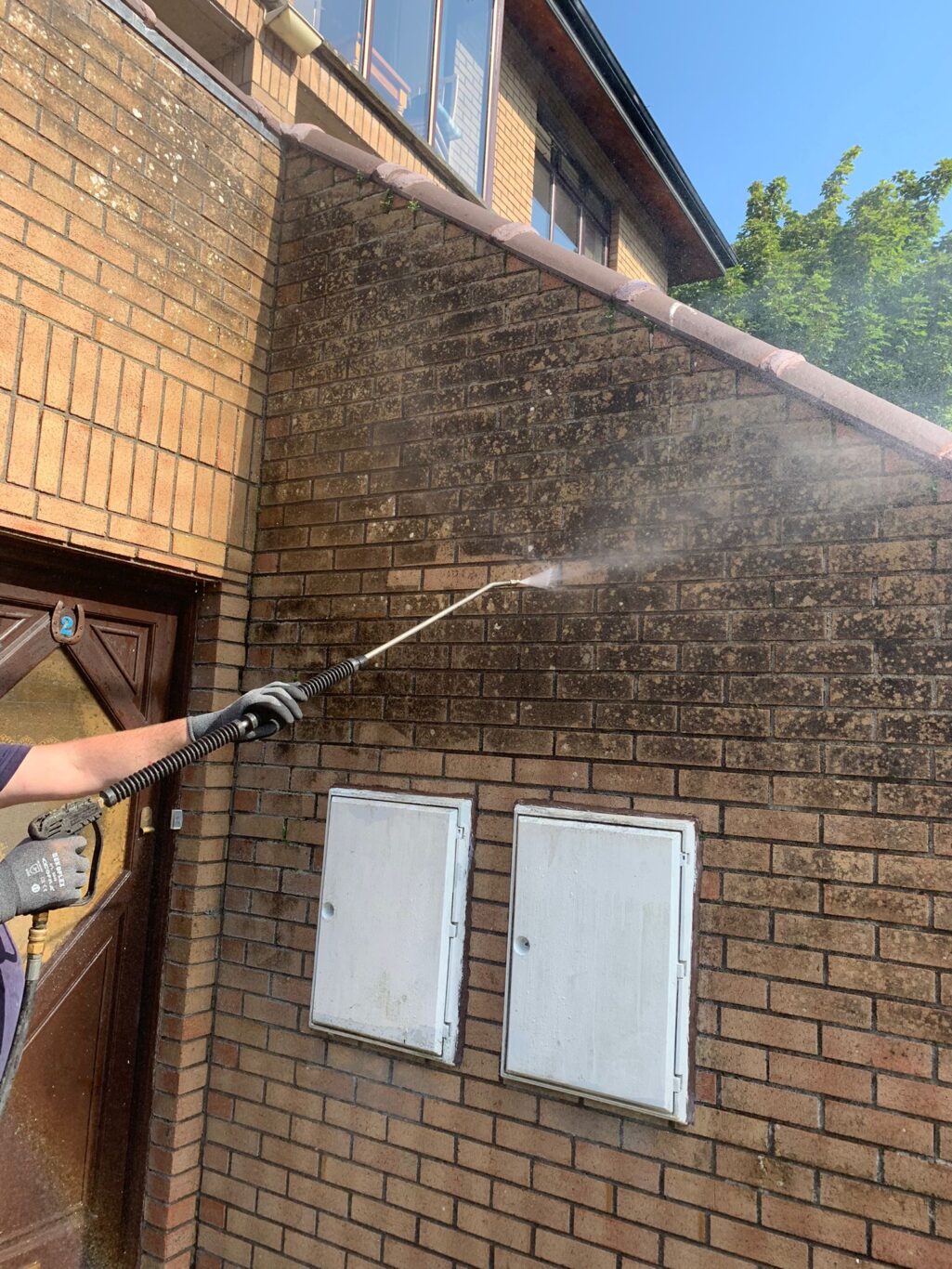Advise for Students seeking accommodation
Article published by the Galway Advertiser, March 2023.

Finding accommodation can be a daunting task for students and parents alike. Galway and indeed other cities in Ireland have experienced an acute shortage of suitable student accommodation over the past five years. The following are our five tips for sourcing accommodation for the upcoming academic year:
Be Early
The old adage ‘the early bird catches the worm’ truly is relevant to finding accommodation. Most student residences start accepting applications from 1st February yearly. Bed spaces tend to fill quickly so make sure to apply early and put your name on all waiting lists as spaces will become available as cancellations occur. If you are currently renting and you’re happy with your accommodation, then approach your landlord early to re-book the accommodation for next year. The universities have accommodation offices and can be very helpful in finding accommodation.
Be Prepared
When viewing accommodation have your previous landlord references to hand. This will help speed up the application process. Where applying for private accommodation form a group with your friends as landlords tend to prefer renting to groups as opposed to individuals. Groups consisting of 3 to 4 students will find sourcing student accommodation easier than larger or smaller groups. Make sure that you have your deposit ready to be paid. Delays in paying a deposit may result in losing a provisionally reserved property.
Be Safe
Beware of accommodation scams in the private accommodation market. Always view the accommodation in person with the landlord or agency before transferring your deposit. Avoid private landlords who are unwilling to meet in person or show the property prior to you paying a deposit. Check that the agency is registered with the Property Services Regulatory Authority. Always pay your deposit by bank transfer, and only to a bank account registered in Ireland. Request a receipt for your deposit payment.
Be Smart
Know your rights but also your obligations. You are entitled to the peaceful enjoyment of your accommodation, but you must pay your rent on time and keep the property in good condition. Remember your current landlord will be able to provide you with a reference at the end of your tenancy. This is a valuable document and may assist you in finding accommodation in the future. Respect your neighbours, do not make excessive noise, or hold large parties. The student code of conduct may apply to your behaviour outside of the university.
Be Savvy
Make sure that you can afford the accommodation rent before committing to a lease. Consider sharing a room, this will reduce your costs and assist in your overall budgeting. Ask your landlord if they would be willing to include utilities such as internet and refuse and ensure the full return of your deposit by leaving your house in a clean and tidy condition.
Ocean Property Management was established in 2013 and provides both student residence and private accommodation to the Galway student market. Please visit our website and follow us on social media for up-dates and property advice.
The Importance of a Sinking Fund in an Owners’ Management Company
An article published in the property section of the Galway Advertiser , March 9th 2023.

The Multi Unit Development Act, 2011, commonly referred to as the MUD Act, introduced a framework to regularise private developments where Owners’ Management Companies (OMC) operate. These developments typically include apartments and other residential units but may include some commercial property.
The MUD Act has specific provisions in relation to the establishment and operation of a sinking fund in an OMC. A sinking fund can be viewed as a rainy day fund where monies are ring-fenced by the owners in a separate OMC bank account for non-recurring future capital expenditure. The legislation outlines a recommended minimum annual financial contribution of €200 per unit, however, this amount is simply a guideline and may not be an entirely suitable contribution amount for every development. It is important that OMC directors are aware of their responsibilities to ensure the creation of a suitable sinking fund provision for both expected and unexpected future capital expenditure. A good tip for property managers and OMC directors is to establish a comprehensive list of crucial structures, plant or other items in a development and outline expected costs and timeframes for their replacement or upgrade. The result of this analysis, which should include a contingency element for unexpected events, can accurately advise the OMC on an appropriate annual sinking fund contribution per unit.
According to the Society of Chartered Surveyors, Ireland the majority of OMCs do not currently have adequate sinking funds in place, due to issues such as a lack of an appropriate annual invoicing scheme or a company carrying large debtor balances, meaning that present owners and future purchasers may face higher service charges than previously experienced. In some EU countries more accustomed to apartment living such as Finland, which has a similar sized economy to Ireland, there is a direct correlation observable between the financial health of an apartment complex management company and apartment property prices. In Ireland as our apartment buildings age a similar relationship may become evident.
In essence, the earlier that an OMC puts in place an appropriate annual sinking fund contribution scheme, the greater the long term protection of their members’ assets. I often get asked by prospective apartment purchasers what they should look out for when surveying the market. I would advise them that one of the most pertinent questions to ask is what is the overall financial health of the management company, and the position of its sinking fund.
Joseph Ronan is a Senior Property Manager in Ocean Property Management. Ocean Property Management was established in 2013 and offers a full range of professional property services.
Checklist for Apartment Buyers!
Knowing what to look out for when viewing an apartment for sale can save you time, stress, unpleasant surprises and help to choose the right property for you. We prepared a checklist of things to look out for to help buyers ask the right questions and make an informed decision.
When you are buying an apartment as oppose to a house, you need to consider additional factors like: condition of the building, service charges, term of the lease and bylaws among others. If you intend to live in this property you are buying into a community that will have an impact on your day to day life.

1. LOCATION
When buying an apartment it’s good to get to know the surrounding area, transport links, shops, restaurants, schools, parks, gym.
What is the amount of traffic, will it be noisy at peak hours? Are there a lot of night bars in the area? Is the apartment building close to motorway?
It’s worth to visit at least a few properties to get an idea what your money can buy. Check recent sales in given area to know the re-sale value of properties and evaluate if the price is reasonable.

2. BUILDING
Some buildings require more maintenance than others. Consider the building’s age & finish.
Will it require regular painting, wood treatment or is it all brick work?
What is the roof like? If it’s flat there might be additional cost involved when insuring the building and carrying out inspections.
Is there a lot of green areas? On one hand they provide a welcome respite in the city on the other they an be quite costly to maintain.
Are the lifts in good working condition or do they seem to be coming to the end of their life and will need to be replaced in the near future?
What are the parking arrangements?

3. SECURITY
What are the security and access control measures in the building?
Is there a manager or concierge in the building?
Does the area have a high crime stats?

4. LEASE
We would advise to pay particular attention to the lease which outlines the rules of the development. They will be legally binding once the contracts are signed. .
If you are a pet owner make sure there isn’t NO PET policy in place.
There can be also restrictions on the aesthetic changes you can make to your property.

5. MANAGEMENT COMPANY
Check if the management company employs a reputable managing agent or are the residents maintaining the development themselves.
Is the service charge realistic?
Is there a sinking fund in place?

6. NOISE
Check if the common areas of the building are noisy and if the apartment is located close to staircases, lifts and other high traffic areas.
What are the residents and area demographic like?
Are your neighbors mostly students, families with children, professionals or older couples?

7. SPACE & LIGHT
It’s important to ensure that the square footage of the apartment is large enough for your needs and the apartment has enough storage space within it.
Is there additional storage space available in the basement or attic?
What is the solar orientation of the apartment and is the light coming through the windows blocked by other buildings?
If you are viewing an apartment during the day and multiple lights are switched on, the unit most likely does not get enough natural light.

8. STRUCTURE & LAYOUT
When attending a viewing of an apartment look for red flags such as cracking, mould, wall and ceiling stains, broken sealants, draft coming from around the windows or from under window sill. Ask if the walls have been insulated.
If there is a fireplace ask if it works and pay attention to the chimney, is the paint coming off or you can clearly see paint bulging?
Think about the orientation of bedrooms and living spaces to common areas and neighbors.
Changing a layout of an apartment might involve a lot of work, so if you are fundamentally not happy with what is there it’s best to move on to another property.
Added Benefits to Power Washing Your Property


Thinking of Power washing your property? Here at Ocean Property Management, we manage a number of properties around Galway and, are equipped to handle all your properties power washing needs. In addition to removing built up dirt and grime power washing can also have some added benefits that you may not have considered before.
- Improve your Buildings curb appeal.
It never hurts to boost your buildings curb appeal, whether your building’s owner is looking to sell or lease out the space. Regularly having your building power washed by professional cleaners will make the building look newer and more aesthetically appealing to both onlookers and potential tenants.
- Prevent repairs:
Certain building materials, such as brick, may deteriorate over time if left unwashed. Bird droppings, mould growth, algae and dirt build up are all contributing factors to the wearing away of a buildings structure, as well as looking unattractive. For example, the acidity in bird droppings can weaken the roofs and gutter systems of commercial properties potentially leading to a collapsed roof or break. Simply cleaning the droppings regularly can reduce the risk of structural damage. Regular power washing of walls, windows, roof, and gutters can help cut down these risks and in turn, saving the business money in maintenance costs in the long run.
- Clean associated spaces:
Its not just the walls, windows and roof that benefit from professional power washing, other exterior spaces associated with the building can be power washed as well. Footpaths and walkways in front of a building are some of the most popular and frequented spaces to be power washed. Power washing the paths can remove unsightly gum and rubbish stains caused by regular public use.
- Promote health and protecting against injury:
Power washing can improve the surrounding environment for people in the building by eliminating potentially harmful substances. Pollutants, dust, pollen, dirt, mildew, algae, and bird droppings can all lead to negative health effects, such as trouble breathing, allergies and in some cases disease. When done regularly power washing can help prevent this from happening.
Consistent cleaning can also help prevent slips and falls, power washing the footpaths and other surfaces can help get rid of grease, mould, and other substances that cam cause someone to slip and hurt themselves.
- Get rid of Graffiti:
When it comes to commercial buildings a persistent problem that business can have, is the appearance of graffiti. While it may not hold the same structural or safety risks as mould or bird droppings, graffiti and spray paints can be among the most offensive and unsightly stains on a building. Power washing can help remove the paint and give your building the respectable and professional look that it needs.
Attached are some photos taken by our maintenance team, while hard at work blasting some of the built-up dirt and grime from buildings under our care around Galway so that they remain as appealing and pristine on the outside, as they are on the inside.
Irish House Price Report Q4 2016 by Daft
Irish House Price Report Q4 2016 by Daft.ie
The new housing mantra is supply, supply, supply… Accoring to Daft report, in total, Ireland needs at least 40,000 new dwellings a year and probably closer to 50,000. These will be concentrated in and near the urban centres and will be disproportionately homes for one- and two-person households, such as apartments, downsizer homes and student accommodation. As the latest figures show, without this kind of supply, we will all have to spend more and more of our income just to have a home.
To read more please visit Daft website here.
Irish Residential Rental Market
Irish Residential Rental Market
According to Ryan Lyons, the author of Daft Quarterly Rental Market Report for Irish Residential Market, the crucial element to understand the rental market in Ireland today is “quantity”. The author believes that the underlying problem is not the problem of prices but the quantity of properties available on the rental market. This is the reason why well intentioned efforts to put caps on rental prices and extending rent increase periods will not sort out current property crises. There are simply not enough properties on the market to meet the demand.
As we might all ask ourselves “what about the ghost estates and all the empty properties?” The simple answer is there is less ghost properties than we believe there is. As per the report “But of the 180,000 units identified in ghost estates, more than half had never even been started – they were just planning permissions on a page – while of the remainder, more than half were occupied. There were roughly 35,000 empty ghost estate units, and almost none in the urban centres.”
So why is there no new properties being build? It seems that the costs of construction are simply too high in comparision to average income (rents that are achievable). “For example, the best figures we have available suggest that to build a two-bedroom apartment and cover costs, excluding land, a rent of roughly €1,400 a month is needed to break even. However, there are very few markets in the country – three out of the 54 analysed in this report, to be precise, and all in central Dublin – where average rents for two-bedroom apartments are at or above 1,400 a month. The cost of construction would need to be roughly half what it is currently in order for it to be viable for either profit or social developers to consider building new homes at scale.”
The question now is why are the prices so high?
Now let’s look at some figures quoted by the report:
Rent Average Nationwide: €964
Average Rent Galway City: €868
Average Rent Dublin City Centre: €1,408
|
1 bed apartment |
2 bed house |
3 bed house |
4 bed house |
5 bed house |
||||||
|
Galway City |
8.50% |
0.10% |
7.90% |
-0.30% |
5.80% |
-0.50% |
3.50% |
-0.30% |
2.90% |
-0.50% |

daft.ie Rental Report: Q3 2015 – An infographic by the team at daft.ie
Property market in Galway
The Galway Advertiser published recently an interview with three local aucioneers. The main findings concerning the property market in Galway include:
- return of buyer confidence
- increased property sales
- severe shortage of supply
- residential letting at a historic high for demand
- auctions not achieving prices as good as the sale of similar houses by private treaty
For more details please visit Advertiser.ie
Declining Oil Prices Impact Global Real Estate Markets
According to Cushman and Wakefield report the impact of lower oil prices on economies and real estate markets remains of key importance to the prospects of occupier markets around the World. Locations with a high proportion of oil and gas related output will be the most vulnerable to the oil price decline.
For the UK, the benefits of a broad increase in consumption and the potential for this to positively impact rental growth in the retail sector, plus the boost to the non-oil producing corporate sector via reduced costs are, on balance, likely to outweigh the negative impact on key oil-producing locations.
To read more please visit worldpropertyjournal.com
Banks to cut interest rates for variable mortgages
It is said that homeowners with standard variable mortgages (SVR) are likely to benefit from reduced interest rates from July this year.
Minister for Finance Michael Noonan met with AIB, Bank of Ireland, Permanent TSB, Ulster Bank, KBC and ACC to discuss variable rates currently being charged by the banks.
Reducing the cost of mortgages might come from:
- straight rate cut
- offering a lower fixed-rate
Mr Noonan warned the banks that if they do not take steps to lower the cost of mortgages, bank levy could be introduced in the Budget.
More details can be found in Irish Times online.



